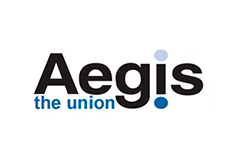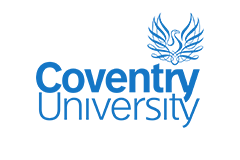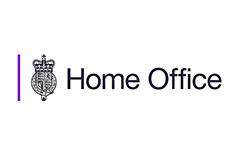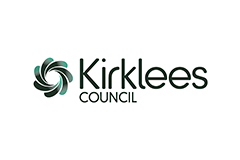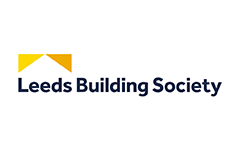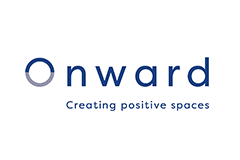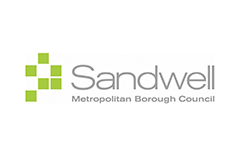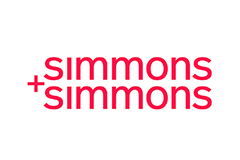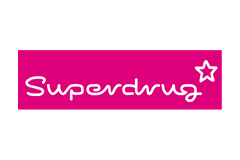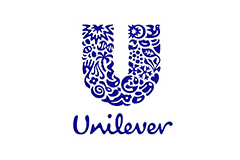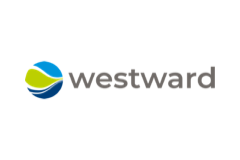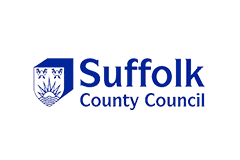
Case Study Suffolk CC
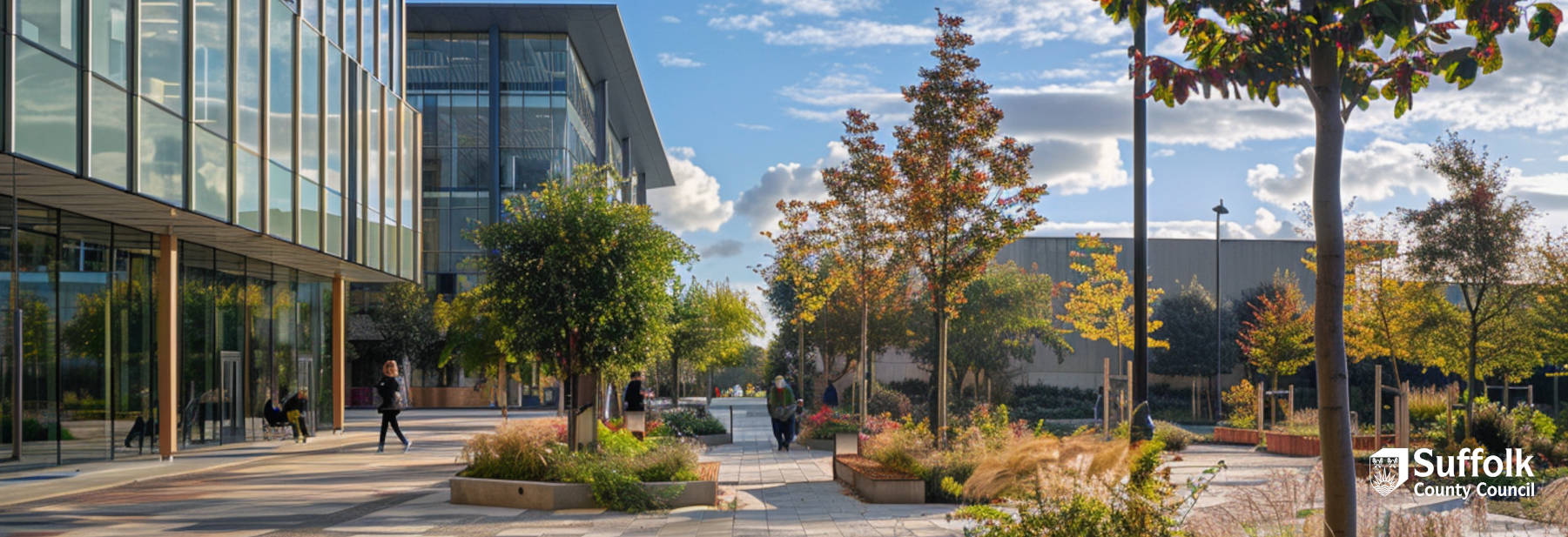
Name of the company for which the work was performed:
Suffolk County Council
Project title:
Implementation of Cloud-based Learning Management System for Internal Local Government Training and External Training
Contact person’s name, title and e-mail address:
Sheryl Howes
Learning Systems Manager
Start and completion date:
January 2022 – Ongoing
Scope, relevance and scale of contract delivered
Scope
The project involved supplying the core corporate Learning Management System: Open eLMS, and customising it to include Suffolk’s payments system and provide a commercial classroom booking system to include course bookings, linking bookings, cancellations, waiting list automation and refunds.
Relevance
Open eLMS provides a cloud-based Learning Management System for Internal and External Training for a client with similar operational requirements required by most enterprise level clients. The feature-rich LMS solution incorporates multiple modules to serve the varying needs of Suffolk County Council. The platform included a booking system, allowing staff to conveniently schedule both classroom and virtual training events, further simplifying administrative tasks and fostering a culture of continuous learning.
Scale
The project’s estimated value stands at £200k+ and hosts over 13,000 users.
Ability to deliver in line with the specification
Open eLMS were able to deliver the project in line with every aspect of the Requirements Traceability Matrix (RTM) which evolved from the initial tender. This involved the development of a new smart classroom system to manage the booking and processing of live learning events both on and offline. Headlines deliverables included:
Open eLMS Classroom – development of new Smart Classroom Add on including:
- Trainer interface for setting up the live lesson and blending learning resources into the session
- Trainer running the lesson online via Teams or Zoom.
- Synchronous learning, allowing for recording completion for all attendees when learning is shared online.
- Whiteboard for sharing learning experiences
- Gradebook attached to each lesson to compare performance across the class.
- Progress monitoring on classroom events tracked at the management and learner levels
- Discussion forums, allowing students and trainers to share ideas adjudicated by the classroom trainer.
- Booking of learning events, allowing learners to enroll via a calendar interface
Reporting
- Customised reports to include events created by smart classroom add-on
- Power BI – custom reporting produced for client
Ability to deliver in line with the agreed outcomes
Open eLMS delivered the customisations within 10 weeks in line with the agreed launch date. The delivered product met all stipulations by the client in the RTM and was delivered with no additional cost on time for a successful launch.
Overall performance against KPI or service levels
Open eLMS delivers its KPIs under its Quality Level Metrics document which specifies the service levels against which it will maintain and operate the Open eLMS system. These metrics have been tracked for each client since July 2021 and are made available to each client on a Power BI dashboard.
To date Open eLMS have resolved all issues raised by the client, an overview of service metrics show issues have only twice risen above 5 in a given month and in most months are much less. In an installation this large this is encouraging. There was a spike recently due to rolling out new functionality which affected
The service satisfaction rating is 4/5 based on a single review.
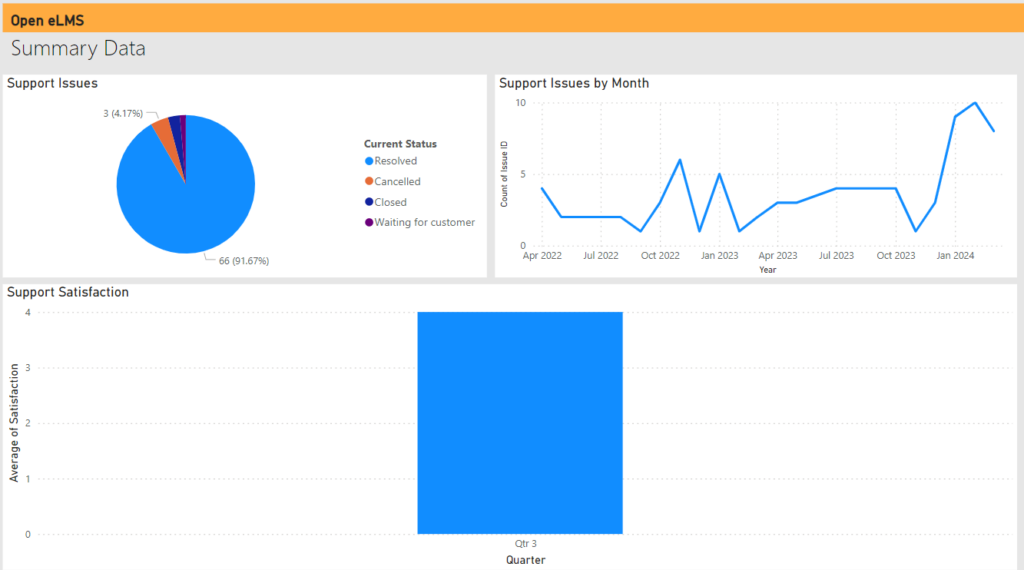
Open eLMS has seen a steady increase in service level responses, with the SLA levels for a first response increasing to 100% this year. The resolution response rate has been consistently good but again showing a positive trend with over 96% of issues being resolved within Open eLMS’s standard SLA response times.
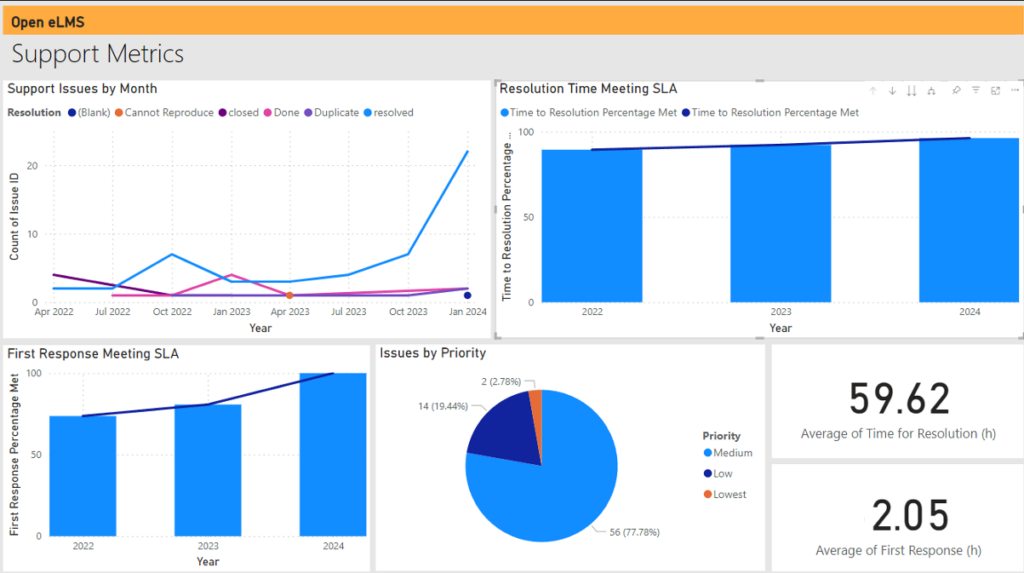
The average response time was 2 hours 3 minutes, whilst issues were resolved on average after just under 60 hours (including out of work hours).
Accuracy of information and service provided
Open eLMS keeps clients informed about system performance, planned outages, and any incidents that may occur. It undergoes regular testing for bugs and issues, ensuring a high level of accuracy and reliability.
The server uses the same infrastructure as Estio, subsequently the metrics are the same with the up more than 99.9% of the time, only slipping below the 99.99% mark at the start of the project (still well above the 99.9% SLA level for this client).
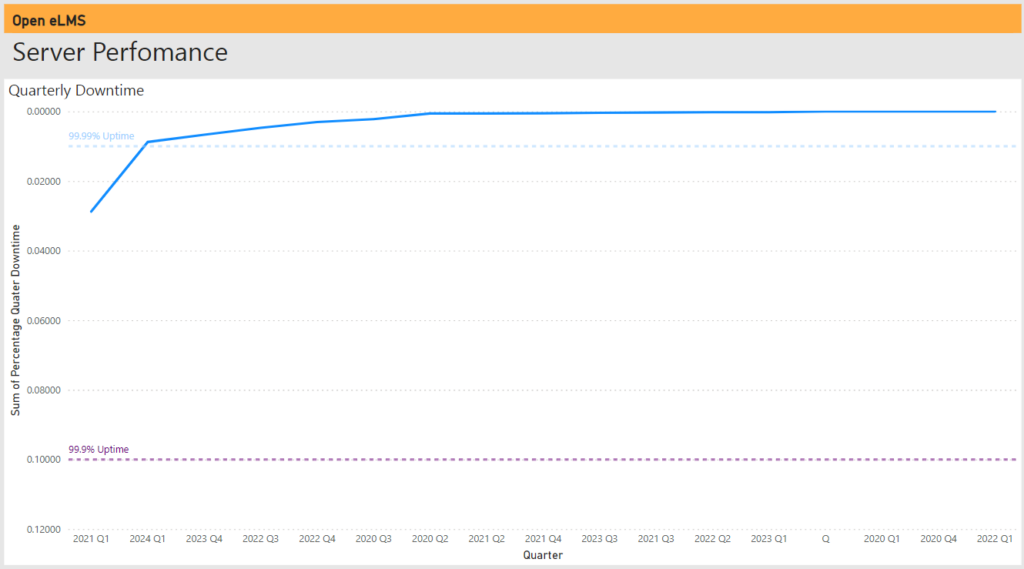
Communication with stakeholders
Open eLMS had weekly catch up meetings with Suffolk CC for the first 3 months after go-live which has been extended to monthly thereafter. In addition ad hoc meetings have been called to discuss system changes and any issues in rolling out new versions.
The client can reach out to the assigned account manager at any time via email or phone.
Added / Social value or innovation delivered
The Open eLMS system increases training opportunities for all council employees. No quantitative metrics are available for the added social value that this has brought to the county.
Ability to improve the environmental impact of delivering services / goods / works
As with Estio, Suffolk have moved an increasingly large amount of their training online via the smart classroom technology provided. Again, this has had a positive impact on reducing travel and heating costs involved in running a non-remote training model for education.
The figures have been taken from the Suffolk instance of Open eLMS, assumptions have been made that prior to the Open eLMS installation, only 20% of virtual sessions were run online.
Carbon cost saved by streaming
- Number of virtual classroom sessions per year = 570
- Average size of classroom (students) = 12
- Face to face 6,840 training sessions saved per year
- Average round journey 10 miles
- Total carbon cost in travel per year = 1,710 Kg
- Total carbon cost in heating per year = 1,140 Kg
Carbon cost saving of running a virtual classroom v’s a face to face classroom = 2,850 kg per year
Saving 2.85 tonnes of CO2 would be equivalent to the carbon stored in around 344 to 427 acres of forest for a year, depending on the type of trees and their growth rates.
